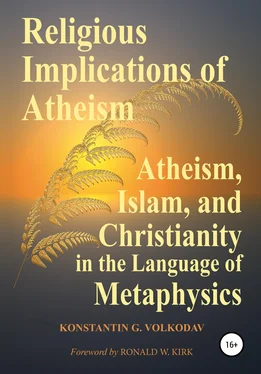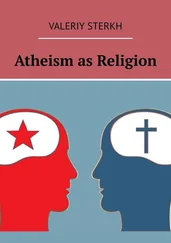For example, King David rode and danced while bringing the ark of God into Jerusalem, like a boy, like a commoner. His wife, Michal, told him that this was a “violation of protocol”, a degradation of the king’s dignity. But David answered her:
“It was before the LORD, who chose me in place of your father and all his household, to appoint me as prince over Israel, the people of the LORD, that I have danced before the LORD. I will make myself yet more contemptible than this, and I will be abased in my own eyes; but by the maids of whom you have spoken, by them I shall be held in honor” (2 Sam. 6:21–22).
Likewise, Zacchaeus, a chief tax collector and a rich man, climbed a sycamore tree like a boy to see Jesus (Luke 19:2–4). The head of the tax department is a fairly high rank, and even in that era, such behavior would have caused ridicule of the people. But Zacchaeus, like David, did not think about it, since all his attention was drawn to the Lord.
Some people, being completely turned to God, did not even look back at religious stereotypes. Religious people did not understand this and therefore expelled them from their society. St. Augustinus wrote about this, “Divine Providence often allows even good people to be driven out of Christian society, because of some extremely violent indignations of the carnal people . . . The Father, who sees the secret, secretly prepares a crown for such. People of this kind are rare, but examples are not lacking; there are even more of them than you might think.” [58] . Augustini Hipponensis episcopi, De vera religione , PL 34, cap. VI, 11, 128. Paris, 1845.
And of course, there can be no religion in a baby in the womb. The greatest of all the prophets, John the Baptist, in the womb of Elizabeth joyfully greeted the Virgin Mary, who also bore Christ in the womb at that time (Luke 1:41,44). Naturally, he did not even think about any religion at that moment. In Christian Tradition, there are many more cases when babies express their feelings for God. Therefore, we can talk about completely non-religious and even pre-verbal communication with God. For example, the gospel call “to be changed and become like children” (Matt. 18:3; 19:14) is just about this. The theologians’ formulas “Christianity is the end of religion” and “Christianity is the trial of religion” will be completely incomprehensible to children. If Christianity is defined as love for God, this will be clear to everyone.
It follows from what has been said that in the modern universal meaning the term “religion” is extremely unfortunate due to its abstractness. In any case, it would be wrong to attribute Christianity to religion in some cases.
Relationship between State and Religion
In one thing, atheists are right: in religions, the human factor plays a significant role, there is much human, sometimes too much human. Religion is a social phenomenon. This is how religions differ from pure metaphysics. One, two, or three people can philosophize about metaphysics as much as they want, but they will never create a religion. And a few people living in a desert will not create a religion. It only occurs in a fairly large society. Therefore, it would be a mistake to view any religion outside the historical, social, and cultural context. Many people are followers of one religion or another, not because they searched for a long time and found some truth in it, but simply because it is the religion of their ancestors, or they were brought up in a certain cultural environment or it is so accepted among their relatives and friends.
Atheists often misunderstand religions as myths about supernatural beings invented by someone. It’s not like that at all. The genesis and existence of religions has many aspects in common with the state. Despite the fact that both the state and religion are often the subject of discussion, there is no single universally accepted definition of these terms. This uncertainty is explained by the fact that both of these concepts are quite complex and multifaceted, and it is not at all easy to express their entire essence with one universal definition.
Hegel said that there can be no definition of the state. However, summing up the various modern definitions, it is possible to highlight its main characteristic features. The state is an institution or a series of institutions for regulating social relations and for providing internal and external conditions for maintaining a certain order in society. These relations are legitimized by ideology and traditions, with which, at least, most of the society agrees.
Much the same can be said about religion. Religion is an institution or a series of institutions for regulating spiritual relations in a society. These relations are legalized by the worldview, ideology, culture and traditions prevailing in a particular society. Religion can be associated with a certain territory, and then it is even more closely intertwined with the state, but much more often religion, like culture, has no geographical boundaries.
Many books can be written on this topic, but for now we will confine ourselves to small comments. The state and religion have a common nature—they are like two channels of one river, two trees from one root. History is replete with examples of diffusion or fusion of the state and religion. As long as there is a certain paradigm of social relations, there is its reflection in religion, and vice versa. There were many theocratic states or those where religion was one of the state institutions. The Byzantine coat of arms, the double-headed eagle, is a reflection of the relationship of almost any state and religion. They have one body and two heads. One head thinks about political or everyday issues, and the other about spiritual ones.
The question naturally arises: what about atheistic states? In them, after all, religion is either prohibited or separated from the state. However, the paradox is that the prohibition of ideology is also an ideology, and the prohibition of religion is also a kind of religion. The nature of the state and religion originates from the socio-psychological nature of man, which cannot disappear anywhere. Therefore, if you “cut off the head” of a two-headed eagle, then in its place will grow another, perhaps not at all similar to the severed, but also head. This also happens in atheistic states. Having banned the old religion, they create a new one in its place. Of course, atheists will avoid religious terminology in every possible way, but, in fact, instead of traditional religion, they create their own religion of unbelief.
For example, in the atheistic USSR, belief in God was replaced by belief in science and the dogmas of Marxism-Leninism. Dissenters (even scientists) have been repressed and discriminated against, so an analogy can be drawn with the Inquisition. There was censorship, and a completely religious cult of veneration of the relics of Lenin in the Mausoleum. Church Councils were replaced by Communist Party Congresses. The glory of the CPSU was sent everywhere (instead of the religious glorification of God), etc. etc.
When a religion is transferred to new soil, it inevitably enters into interaction with previous traditional religious ideas, because it is impossible to start from scratch. The new religion is either built into the previous ones, or there is a kind of diffusion, hybridization. That is why in Judaism there was a strict prohibition even on everyday communication with pagans; and Christians from the Jews were very wary of the conversion of pagans, and the Romans looked wary of Christianity, since they saw it as a threat to their state. History shows many examples of hybridization of religions. In Byzantium, there was often a mixture of Neo-Platonism, Hellenic paganism and Christianity, simply veiled under different names, under different masks. In Latin America and Africa, under the guise of Christian saints, they still worship their ethnic spirits, they simply changed their names and external attributes.
Читать дальше

![Константин Бальмонт - Константин Бальмонт и поэзия французского языка/Konstantin Balmont et la poésie de langue française [билингва ru-fr]](/books/60875/konstantin-balmont-konstantin-balmont-i-poeziya-francuzskogo-yazyka-konstantin-balmont-et-thumb.webp)










